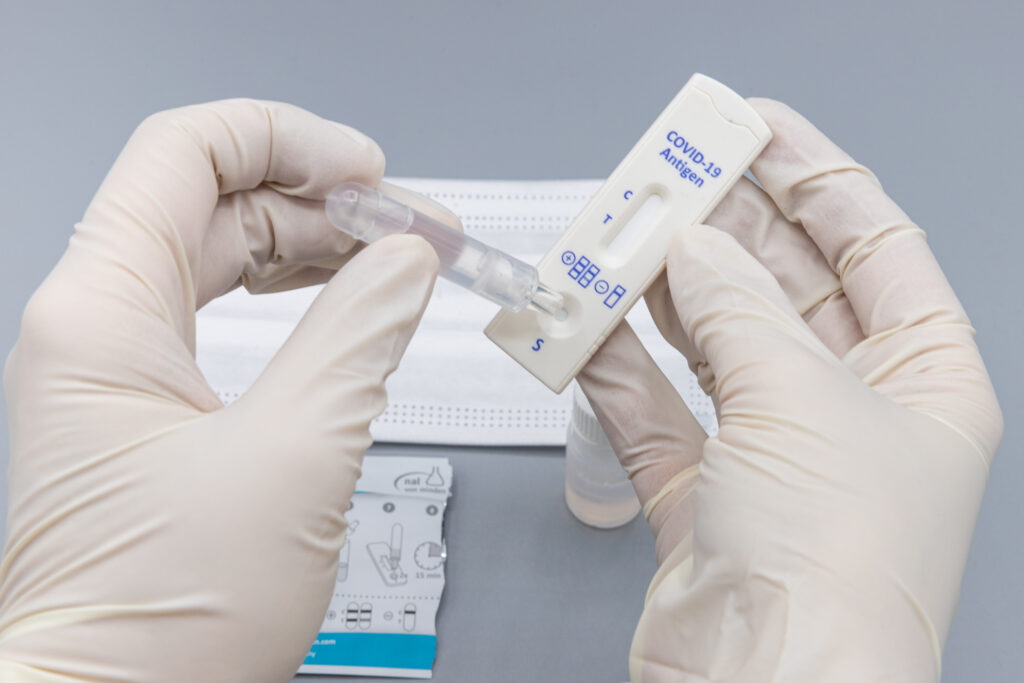The use of rapid antigen tests for Covid-19 is increasing in Portugal, having reached the highest number on April 7, with more than 34.000 performed on that day, according to data from the Ricardo Jorge Institute.
"It was the day we performed more rapid antigen tests since the beginning of the pandemic [in March 2020], corresponding to 55% of the total tests performed" in the country on that date, told the agency Lusa Cristina Abreu Santos, member of the council director of the Dr. Ricardo Jorge National Health Institute (INSA).
The data show that there was "greater use of these rapid antigen tests, especially in the context of screenings being carried out in the country", such as, for example, in schools and in places with a higher risk of transmission in the workplace, advanced.
Taking stock of the number of tests carried out in 13 months of the pandemic, Cristina Abreu Santos revealed that between 1 March last year and 7 April 2021, approximately 9,4 million PCR and rapid tests were carried out, almost the number of the Portuguese population.
The largest number of tests was carried out on the 22nd of January, when Portugal was at the peak of the third wave, surpassing 77 thousand and is now performing similar values.
“When we now say in April that we did again about 70 tests, I just wanted to highlight a big difference, is that in January the positivity rate [number of positive tests over total tests] was around 20%, while today it is around 1,1%, which shows how the evolution of the epidemic is completely different from January to now”.
In recent days, more rapid tests have been performed than PCR tests, methodologies that are complementary, although PCR is the "reference method" recommended for people with symptoms and for other situations that the guidelines of the General Directorate of Health recommend as privileged method.
“It should always be used, above all, because it is through this method that we are able to identify, for example, the new variants that circulate in Portugal”, defended the vowel.
Rapid antigen tests are also recommended for being a “cheaper, more accessible method, and it is recommended, above all, in screenings, allowing a screening to be carried out every x days in a given population”.
There is now a new form of testing that is not included in the national testing strategy, but which is also complementary to the fact that self-tests have been sold for about a week in pharmacies and parapharmacies.
“We have to understand the value of a self-test. In principle, it will be for non-symptomatic people or people who have not had a risky contact, because if they have had a risky contact, or if they have symptoms, they should contact the NHS 24 to be prescribed a PCR test”, explained Cristina Abreu Silva.
The important thing for the health authorities and for the INSA, he stressed, “is to test more and more so that positive cases can be identified as early as possible in the country, to identify, isolate and to find the contacts of these cases and trace them”.
"The tests are a tool that helps us to identify cases early and to have a sense of the country's epidemiological situation, but they do not dispense with maintaining the non-pharmacological measures and all the recommendations of the Ministry of Health and the General Directorate of Health in the sense to prevent the spread of the disease”, he stressed.
Asked when the Operationalization Plan for the Testing Strategy in Portugal is presented, promoted by the 'task force' coordinated by the president of INSA, Fernando Almeida, the responsible said that it should be this week.



















Comments